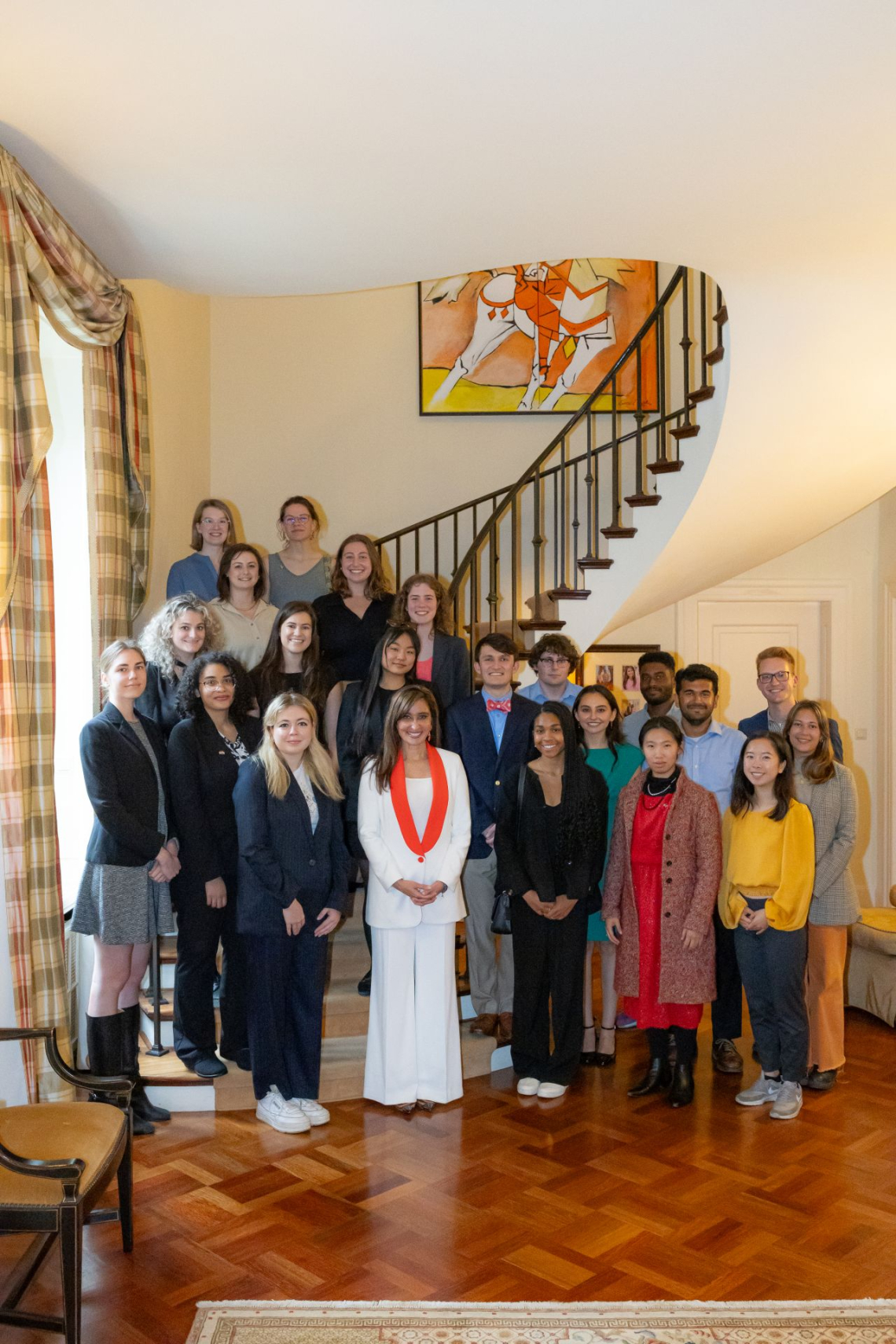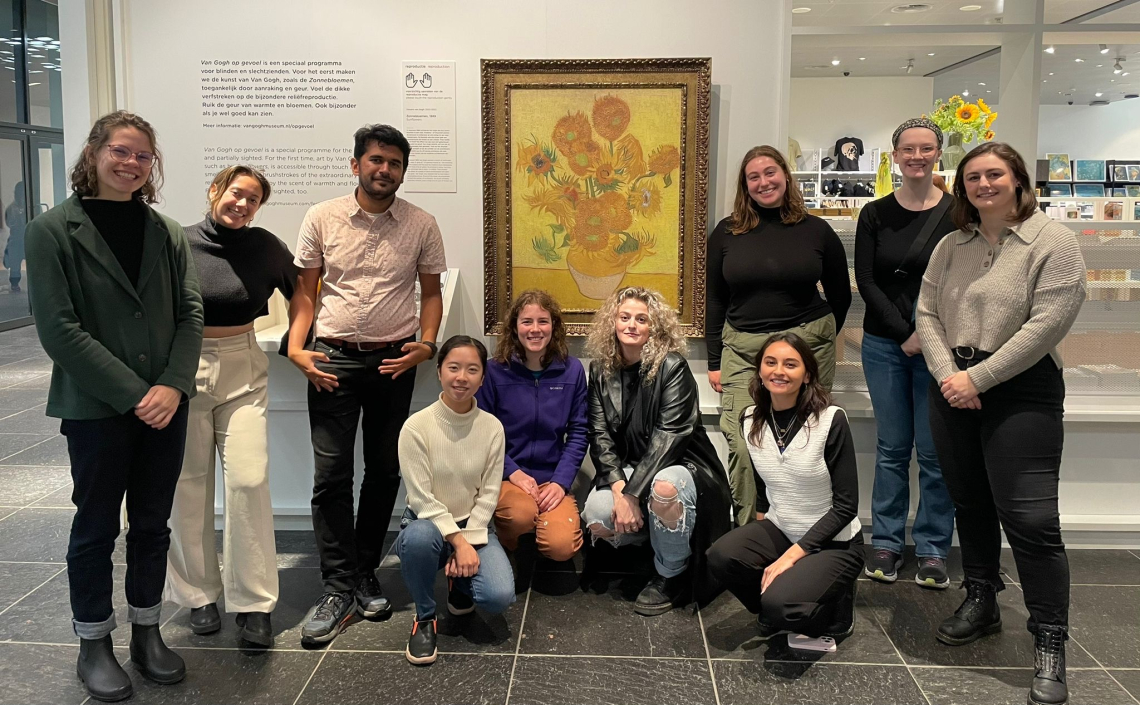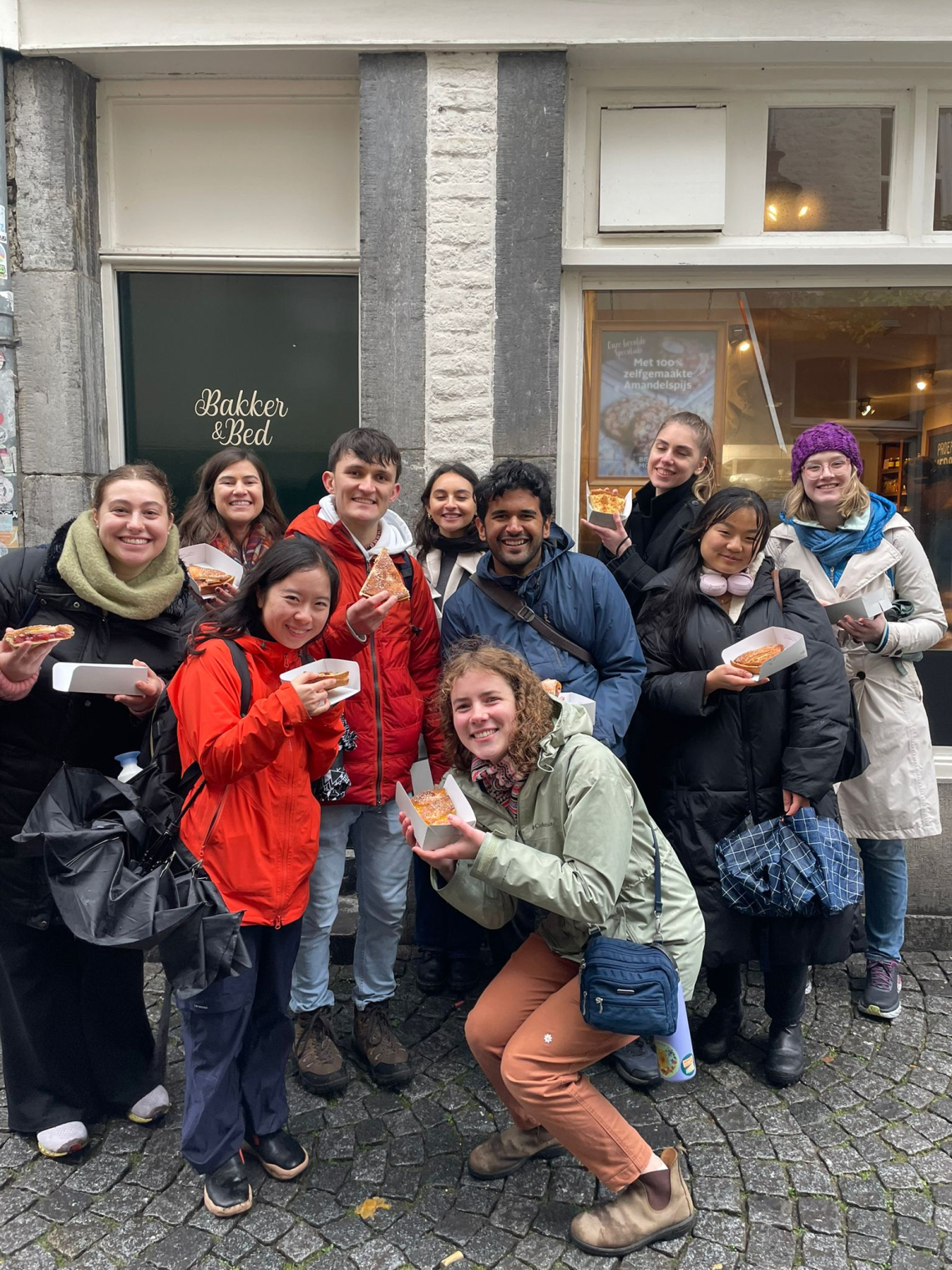Netherlands
1 Fulbright/NAF Fellowship in Flood Management
Accepted Degree Levels
|
Grant PeriodFall StartGrant Length9 Months |
Award Type
Award Profile
This Fellowship is limited to research related to flooding. Other water management areas, such as managing municipal water supplies, are not supported by this Fellowship.
Grant Length
Grant Period
Grant activities must begin by September 1, so that the grantee can attend the first orientation meeting which will be held at the end of August or the beginning of September.
Orientation
The one-day mandatory Fulbright In-Country orientation will take place at the end of August/beginning of September (date to be determined). There also is a second introduction meeting at the end of September, usually taking place at the U.S. Ambassador's Residence.

Candidate Profile
Candidates at all degree levels will be considered. Preference will be given to those with coursework in civil engineering. Applicants should have attained their undergraduate core technical skills already, but will want to complement these with a graduate multidisciplinary study of water management aspects, such as:
- Assessment of flooding risks (e.g. analysis of hydraulics of coastal and riverine flooding, analysis of flooding probabilities and consequences, determining acceptable flooding risks in relation to other natural disasters; distributing risks to minimize damage; assessing economic, social, environmental, and/or cultural damages using studies conducted by insurance companies; insurability);
- Spatial planning in flood-prone areas (e.g., the use of simulation hydraulic modeling tools applied to complicated interdependent resource management choices);
- Mitigating flood impact and flood risk reduction (e.g. measures such as room for rivers, coastal interventions and flood defence schemes, influencing land development of flood-prone areas through legislation; developing of evacuation plans and disaster management).
What is life like for Fulbrighters in the host country?
Applicants are expected to research their host country. Application materials should indicate a clear commitment to the host country community and a description of how you will engage with it.
The Netherlands is a small country, approximately the size of Maryland or West-Virginia. It is a fairly densely populated country, with good public transport links. This makes it easy to travel to other parts of the country during your stay. It has a temperate climate with a fair amount of rain. The Dutch economy is geared mainly towards import/export, services and trade, and less on heavy industry. Most Dutch people will be able to speak basic English, and you will be able to get around without speaking Dutch. However, it is really appreciated if you learn some Dutch either before or during your stay in the Netherlands. With three airports, in Amsterdam (all destinations), Rotterdam and Eindhoven (European destinations), it is also easy to reach other European countries for weekend trips.
The Dutch are known for being direct, which can also be interpreted as being rude or blunt. In general, most Fulbright grantees indicate that it takes a bit of getting used to, but they appreciate it after being in the country for a while. The grading system in the Netherlands may also take some time getting used to. It ranges from 10-1, with a 10 being a perfect score and anything below 6 a fail. The grades 10 and 9 are rarely given, only in case of exceptionally good work, a 7 and 8 are considered to be good grades. Also, the courses and grading are mostly based on exams at the end of term. The Dutch Fulbright Commission will organize four meetings during your stay, two introduction meetings at the beginning of the grant period, a mid-year evaluation and a meeting at the end of the grant period. There also is a cultural excursion program in place, where approximately 4 excursions are organized to places of interest in the Netherlands.


Eligibility
1 Month
Fulbright the Netherlands prefers to select applicants with no or limited experience in the Netherlands, especially in the year before the grant period. A brief holiday or a summer program in the year before the grant year would be acceptable.
Degree Level of Applicant
- Bachelor's
- Master's
- Doctoral
Special Application Instructions
In your Fulbright online application, for Award Name please select NAF Flood Management from the drop down menu.
Foreign Language Evaluation (FLE) Form
If required, submission of the Foreign Language Evaluation (FLE) form is mandatory, even if you have advanced skills or are a native speaker of the language. Failure to submit the required FLE form may impact your eligibility.
Additional Information: Dutch language proficiency is not required, but is useful at the time of arrival. Some study of Dutch prior to arrival is encouraged in order to promote deeper engagement with the host community.
Fulbright Proposal Types
Yes
No
Affiliation
The TU Delft is a large technical university and the grantee must be prepared to be an independent researcher. There is no formal structure to support Fulbright grantees, so it is important for applicants to arrange beforehand where and with whom they intent to work with and include a letter of affiliation with the application.
The grantee should be placed with the TU Delft Deltas, Infrastructures and Mobility Initiative.
Affiliation Fees/Tuition
As a researcher at TU Delft, you will not have to pay tuition fees.
Award Benefits
- A stipend broadly based on the cost of living in the host country. These funds may be used by the grantee to support housing, meals, and incidental costs during the grant period.
- International travel benefits
- Accident & sickness health benefits
- 24/7 mental health support line for urgent and non-urgent situations
- 12 months of non-competitive eligibility (NCE) hiring status within the federal government
Stipend Amount
This is an estimated amount and is subject to change. The financial terms of the grant will be confirmed in the grant document issued after selection.
The grant is paid in monthly instalments.
One-Time Allowances
This is an estimated amount and is subject to change. The financial terms of the grant will be confirmed in the grant document issued after selection.
- Registration/Permitting fees
- Local transportation allowance
A residence permit is mandatory for the Netherlands. The costs of the residence permit will be reimbursed. Also, for any mandatory Fulbright meetings, local travel costs by public transport will be reimbursed. There will be an international round trip ticket by KLMW provided via the Netherland-America Foundation.
Additional Grant Benefits
- Mid-year seminar
There will be four meetings over the course of the year, one of which will be the mid-year evaluation. Grantees will also be reimbursed for a Museum Year Card, giving free access to over 400 museums in the Netherlands.
Estimated Cost of Living
Consider using cost of living comparison websites to gain a better understanding of the potential costs in your host country.
This website is a good way to get a general idea about the cost of living in the Netherlands.
Dependents
Dependent support is not available. If an applicant is planning on bringing dependents, please contact the host institution to inquire whether they are willing to also apply for a residence permit for the dependents. Without a residence permit applied for by the host, dependents will not be able to join the applicant.
Housing Arrangements
Grantees are responsible for finding housing themselves. Delft University of Technology may be able to help with this, but housing is not guaranteed. The Fulbright Commission suggests to start searching early, as the housing market in the Netherlands is challenging.
Fulbright Program Management Contact
Fulbright Commission/U.S. Embassy Website
Fulbright Commission/U.S. Embassy Contact
Additional Online Resources
Information about the Netherlands: https://www.netherlandsandyou.nl/themes
Dutch Government Website: https://www.government.nl/topics
More information about the Netherlands: https://www.netherlandsandyou.nl/more-about-the-netherlands
